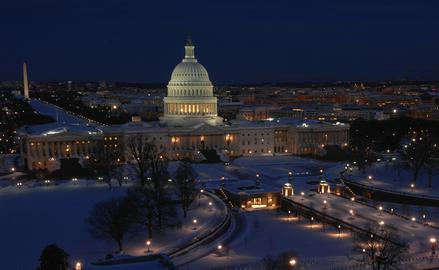The Supreme Leader’s opposition to US- and UK-made vaccines has been met with public outrage in Iran. Apart from being driven by ideology and personal profit over good sense, Ali Khamenei’s claim that Western scientists “cannot be trusted” is reminiscent of the hollow warnings meted out to the Iranian people more than 100 years ago, during the rule of the Qajar dynasty.
In a televised speech last Friday, Khamenei told his audience that vaccines from the US and the UK were “banned” because he did not trust them, adding: “Perhaps they want to test their vaccines on Iranians".
Superstition has informed the Supreme Leader’s public response to Covid-19 on several occasions, though none to as devastating an effect as this. In April 2020, Khamenei alluded to “Jewish sorcery” and “demonic forces” being behind the new coronavirus disease, and also suggested it had been manufactured by the United States as justification for refusing US medical aid. The Revolutionary Guards and clerical caste have also heaped suspicion on foreign aid at every turn.
Disinformation promoted by religious authorities about the origin and nature of Covid-19, and about the vaccines being produced around the world to treat it, pose a secondary risk to public health in Iran after that of the pandemic itself.
In recent days, several Iranian social media users have drawn comparisons between the current situation and the struggles faced by Amir Kabir, the first prime minister of Iran during the reign of Nasser al-Din Shah Qajar. During the smallpox outbreak in Iran, Amir Kabir had been at pains to try to vaccinate the Iranian people against cholera but had faced staunch resistance and obstacles thrown up by Shia clerics and politicians.
“The fact that almost 170 years after Amir Kabir, we still have to discuss the vaccine with the clergy of the clergy, I think tells us some interesting things about religion,” one Iranian user bitterly wrote. Another commented darkly that it was as if “we brought Amir Kabir back by time machine”.
Still more reported a painful sense of history repeating itself, with one writing: “If Amir Kabir was here, he would be proud of the children of Iran, making victims of corona every day.”
Clerics, the unelected state in Iran and promoters of traditional medicine now stand accused of promoting the same isolationist narratives they did almost two centuries ago, risking people’s lives in the process. Cyril Lloyd Elgood, a British doctor who would later serve as honorary physician to the king of Persia, wrote in his historical account of smallpox in Iran: “Tehran clerics protested against the presence of Europeans and considered it one of the main causes of the outbreak of the disease.”
Another Iranian account notes that some Qajar Shiite clerics such as Grand Ayatollah Mirza Shirazi, along with traditional healers and prayer writers, considered modern medicine to be a form of apostasy. They feared, this scholar says, that "modern medicine would be a prelude to the domination of Dar al-Kufr [heresy] over Dar al-Islam... Therefore, obstacles were created to any kind of innovation that smelled of the West.”
Anti-West propaganda and superstition in the Qajar era sought to discredit both Western doctors in Iran and the treatments they proscribed. As a result, many people avoided inoculation against smallpox. James Morier, writing in 1818, states that in his view it was mostly the elite and upper classes that were against vaccination, rather than the “common people”, and adds that embassy doctors vaccinated more than 300 poor children in Tehran in a month. Had the government not stopped the program due to prejudice, he writes, many more lives could have been saved.
Religious authorities in the early 1800s also claimed that sanitation methods promoted by the British in southern Iran aimed to “boil Muslim children” and that English doctors had made “a pact with the devil”.
Resistance against clinical best practice continued for decades to come. Hajj Sayah, a famous Iranian-American world traveller born in Mahalat, Markazi province in 1836, writes that Iranian seminary students in Kermanshah blocked the quarantine of a cleric they admired after he returned from Najaf, Iran. Their justification for this, he wrote, was “The presence of His Holiness is a blessing and generous, and wherever he steps, misery is removed and there is no need for quarantine." The passage is reminiscent of the claims by Qom-based clerics in early 2020 that religious shrines were “houses of healing”, to which people should come “in force” mid-epidemic.
During a cholera outbreak in Iran at the turn of the 20th century, religious scholars suggested people could protect themselves by shooting guns or making loud noises. They also claimed that Jews and Christians in the city of Shiraz were immune to cholera, leading, according to historical accounts, to Muslims getting drunk in the streets in the misguided belief that it would ward off the disease.
Ultimately, opposition by the Iranian clergy throughout history to Western medicine has been borne out of its fear of losing influence with the people. Some Iranian herbal physicians have echoed these sentiments over the years, decrying European medicines as “toxic” again presumably for fear of competition.
Despite all these sabotage attempts, modern medicine was gradually adopted and became widespread in Iran during the Qajar era. But now, more than 170 years later, Khamenei and the clerics he relies on for support appear to be intent on dragging the country back to the Dark Ages in its hour of need.
Related coverage:
Khamenei Risks the Lives of Iranians by Banning American and British Vaccines
Fact Check: Are Vaccines Part of America and Britain’s Devious Plans?
The Long-Term Consequences of Khamenei’s Vaccine Ban
Iranian Doctors Urge the Government to Stop Politicizing the Vaccine
Khameni's Lie and Other Vaccine Myths Iranians Can Safely Ignore
visit the accountability section
In this section of Iran Wire, you can contact the officials and launch your campaign for various problems



























comments